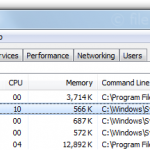 Reports have recently increased about a process in Microsoft Windows, called rcpnet.exe, believed to be located in C:\WINDOWS\system32\rpcnet.exe. This program is not considered to be a virus and has been reported to be the process of the service Remote Procedure Call by Absolute® Lojack software, protecting mobile devices, such as pads, laptops and smartphones from theft by different means. It is believed to be very difficult to remove since some claim that it can withstand factory resets or hard drive wipes.
Reports have recently increased about a process in Microsoft Windows, called rcpnet.exe, believed to be located in C:\WINDOWS\system32\rpcnet.exe. This program is not considered to be a virus and has been reported to be the process of the service Remote Procedure Call by Absolute® Lojack software, protecting mobile devices, such as pads, laptops and smartphones from theft by different means. It is believed to be very difficult to remove since some claim that it can withstand factory resets or hard drive wipes.
Why Do People Consider Rcpnet Malware?
Most users may report rcpnet.exe as a virus, because of two main reasons. One of them is that they cannot remove it, since it may be located in MBR (Master Boot Record) which makes it impossible to delete ,even via software. Some even claimed to try removing it via /Root/LEGACY. However, they say that it restored itself right back after a reboot of the machine. Despite that, there might be a possibility to remove it if you installed it yourself.
The other reason that it is considered a virus is that it may sometimes pop up as malware if you scan your PC, reports claim. The only way to eliminate this is to add exceptions in your antivirus for the rcpnet.exe. Also, another symptom for believing it is a virus is that it is considered sometimes to run rcpnet.exe process that is not a part of Windows services, even though it may be located in the \system32\ folder.
Rcpnet Removal
Even though it is not considered a virus if a user would like to use no longer the services of Absolute LoJack, there are two ways of doing it, depending on how it is installed. If it came together with the device when you bought it, you should try to contact either Absolute®Sofware or your retailer. If you have installed it by yourself, it may be possible to uninstall it from the PC from Add&Remove.
To check if rcpnet is legitimate:
→Type ’run’ in the search engine of your Start Menu -> then type ‘MSConfig’ -> press Enter -> Go to the Services tab -> Tick where it says “Hide All Microsoft Services”
After that it is recommended to check all of the services and also see if there is Absolute Software Corp in the Manufacturer tab located next to the service that may be called Remote Procedure Call or RPC.
You should be careful for other similar processes since they may not always be legitimate and may pose risks to your computer. In case you do not have experience with identifying unfamiliar services in your computer or just don’t have the time, you may want to run a full system.

Spy Hunter scanner will only detect the threat. If you want the threat to be automatically removed, you need to purchase the full version of the anti-malware tool.Find Out More About SpyHunter Anti-Malware Tool / How to Uninstall SpyHunter
Preparation before removing Rcpnet.exe.
Before starting the actual removal process, we recommend that you do the following preparation steps.
- Make sure you have these instructions always open and in front of your eyes.
- Do a backup of all of your files, even if they could be damaged. You should back up your data with a cloud backup solution and insure your files against any type of loss, even from the most severe threats.
- Be patient as this could take a while.
- Scan for Malware
- Fix Registries
- Remove Virus Files
Step 1: Scan for Rcpnet.exe with SpyHunter Anti-Malware Tool
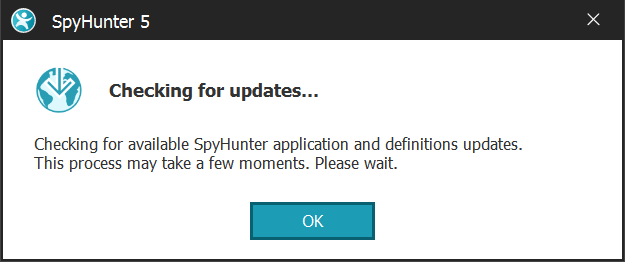
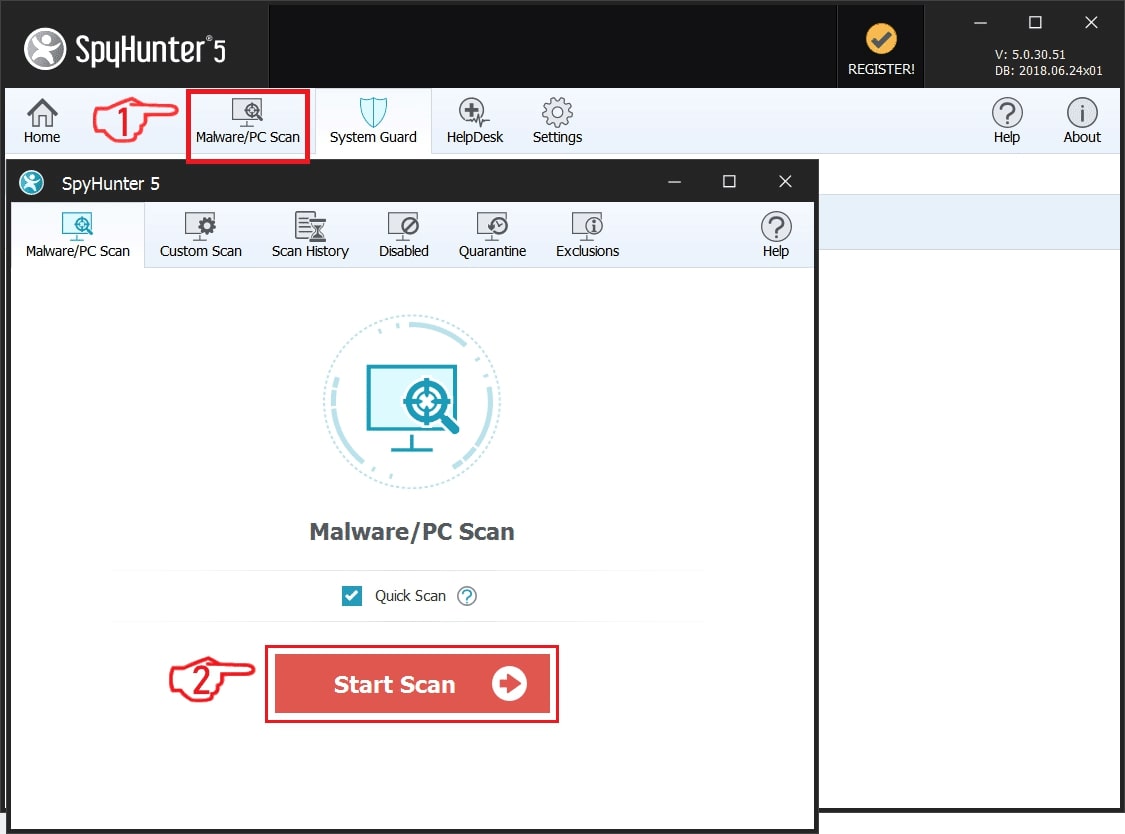
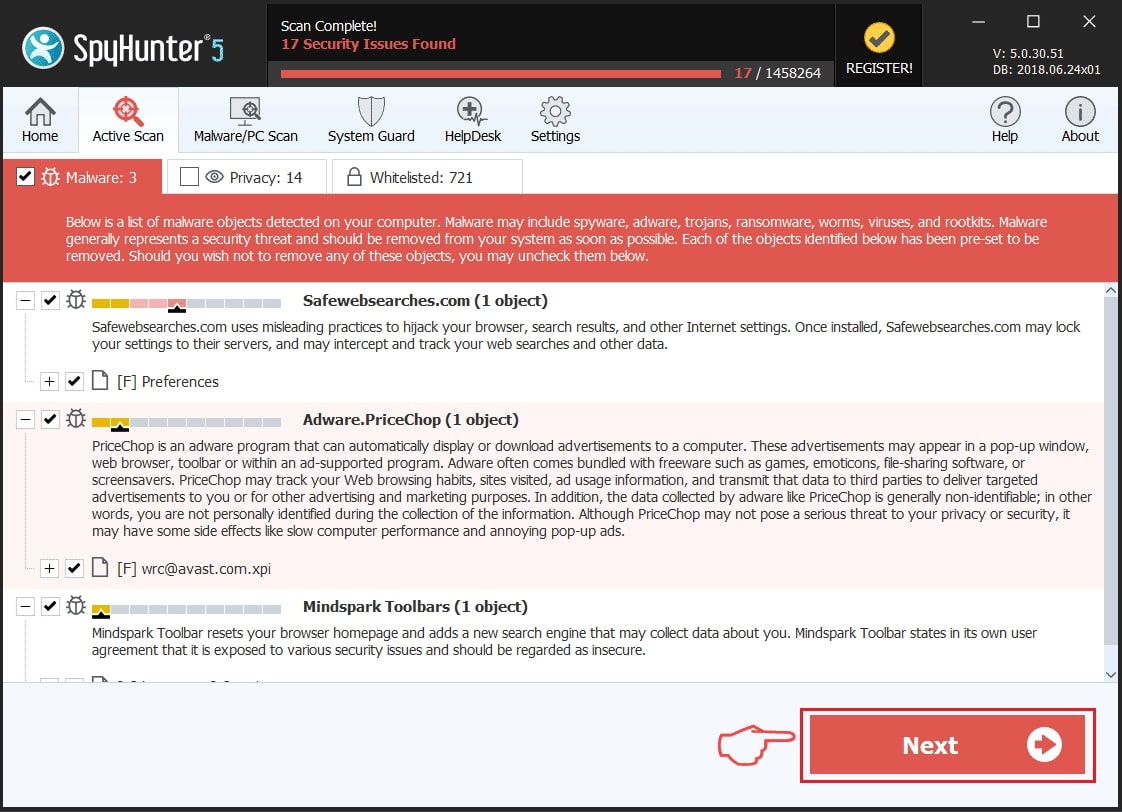
Step 2: Clean any registries, created by Rcpnet.exe on your computer.
The usually targeted registries of Windows machines are the following:
- HKEY_LOCAL_MACHINE\Software\Microsoft\Windows\CurrentVersion\Run
- HKEY_CURRENT_USER\Software\Microsoft\Windows\CurrentVersion\Run
- HKEY_LOCAL_MACHINE\Software\Microsoft\Windows\CurrentVersion\RunOnce
- HKEY_CURRENT_USER\Software\Microsoft\Windows\CurrentVersion\RunOnce
You can access them by opening the Windows registry editor and deleting any values, created by Rcpnet.exe there. This can happen by following the steps underneath:
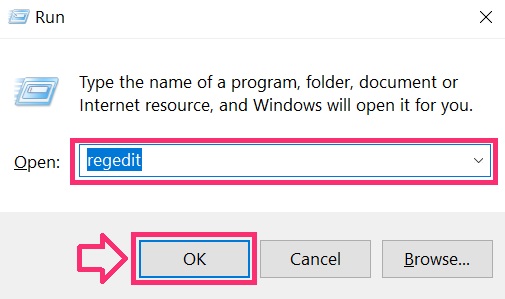

 Tip: To find a virus-created value, you can right-click on it and click "Modify" to see which file it is set to run. If this is the virus file location, remove the value.
Tip: To find a virus-created value, you can right-click on it and click "Modify" to see which file it is set to run. If this is the virus file location, remove the value.Step 3: Find virus files created by Rcpnet.exe on your PC.
1.For Windows 8, 8.1 and 10.
For Newer Windows Operating Systems
1: On your keyboard press + R and write explorer.exe in the Run text box and then click on the Ok button.
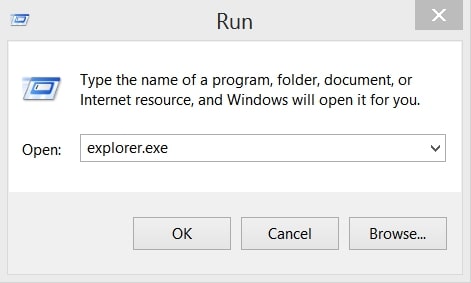
2: Click on your PC from the quick access bar. This is usually an icon with a monitor and its name is either “My Computer”, “My PC” or “This PC” or whatever you have named it.
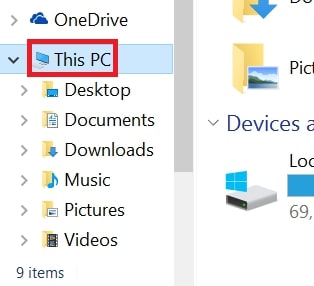
3: Navigate to the search box in the top-right of your PC's screen and type “fileextension:” and after which type the file extension. If you are looking for malicious executables, an example may be "fileextension:exe". After doing that, leave a space and type the file name you believe the malware has created. Here is how it may appear if your file has been found:
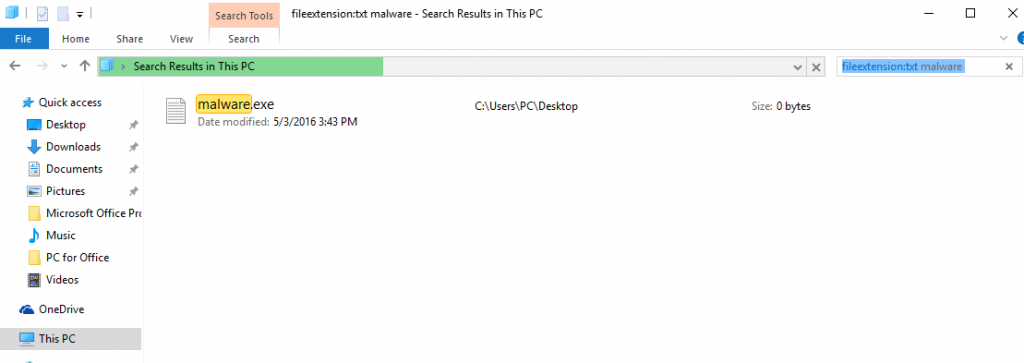
N.B. We recommend to wait for the green loading bar in the navigation box to fill up in case the PC is looking for the file and hasn't found it yet.
2.For Windows XP, Vista, and 7.
For Older Windows Operating Systems
In older Windows OS's the conventional approach should be the effective one:
1: Click on the Start Menu icon (usually on your bottom-left) and then choose the Search preference.
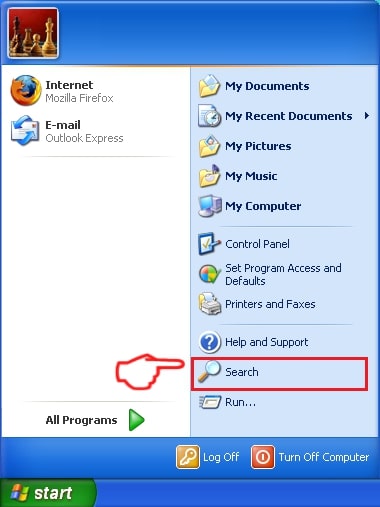
2: After the search window appears, choose More Advanced Options from the search assistant box. Another way is by clicking on All Files and Folders.
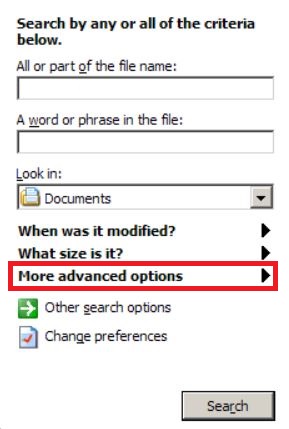
3: After that type the name of the file you are looking for and click on the Search button. This might take some time after which results will appear. If you have found the malicious file, you may copy or open its location by right-clicking on it.
Now you should be able to discover any file on Windows as long as it is on your hard drive and is not concealed via special software.
Rcpnet.exe FAQ
What Does Rcpnet.exe Trojan Do?
The Rcpnet.exe Trojan is a malicious computer program designed to disrupt, damage, or gain unauthorized access to a computer system. It can be used to steal sensitive data, gain control over a system, or launch other malicious activities.
Can Trojans Steal Passwords?
Yes, Trojans, like Rcpnet.exe, can steal passwords. These malicious programs are designed to gain access to a user's computer, spy on victims and steal sensitive information such as banking details and passwords.
Can Rcpnet.exe Trojan Hide Itself?
Yes, it can. A Trojan can use various techniques to mask itself, including rootkits, encryption, and obfuscation, to hide from security scanners and evade detection.
Can a Trojan be Removed by Factory Reset?
Yes, a Trojan can be removed by factory resetting your device. This is because it will restore the device to its original state, eliminating any malicious software that may have been installed. Bear in mind that there are more sophisticated Trojans that leave backdoors and reinfect even after a factory reset.
Can Rcpnet.exe Trojan Infect WiFi?
Yes, it is possible for a Trojan to infect WiFi networks. When a user connects to the infected network, the Trojan can spread to other connected devices and can access sensitive information on the network.
Can Trojans Be Deleted?
Yes, Trojans can be deleted. This is typically done by running a powerful anti-virus or anti-malware program that is designed to detect and remove malicious files. In some cases, manual deletion of the Trojan may also be necessary.
Can Trojans Steal Files?
Yes, Trojans can steal files if they are installed on a computer. This is done by allowing the malware author or user to gain access to the computer and then steal the files stored on it.
Which Anti-Malware Can Remove Trojans?
Anti-malware programs such as SpyHunter are capable of scanning for and removing Trojans from your computer. It is important to keep your anti-malware up to date and regularly scan your system for any malicious software.
Can Trojans Infect USB?
Yes, Trojans can infect USB devices. USB Trojans typically spread through malicious files downloaded from the internet or shared via email, allowing the hacker to gain access to a user's confidential data.
About the Rcpnet.exe Research
The content we publish on SensorsTechForum.com, this Rcpnet.exe how-to removal guide included, is the outcome of extensive research, hard work and our team’s devotion to help you remove the specific trojan problem.
How did we conduct the research on Rcpnet.exe?
Please note that our research is based on an independent investigation. We are in contact with independent security researchers, thanks to which we receive daily updates on the latest malware definitions, including the various types of trojans (backdoor, downloader, infostealer, ransom, etc.)
Furthermore, the research behind the Rcpnet.exe threat is backed with VirusTotal.
To better understand the threat posed by trojans, please refer to the following articles which provide knowledgeable details.

